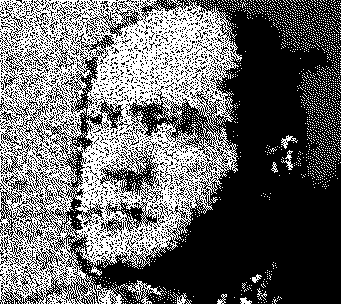The problem of the Left Pole is, who’s not a Nazi who’s not leftist? This is a consequence of the game leftists play, calling everyone not leftist the very worst names they can think of.
The latest casualty is Javier Milei, libertarian president of Argentina. He’s been called a fascist.
Benjamin Williams clears this up in “No, Milei Is Not a Fascist,” over at Mises Wire.
The dictator Benito Mussolini and his close comrade Giovanni Gentile were indisputably fascists. They invented fascism, wrote fascist literature, and called themselves fascists. So it stands to reason that if you want to see if Javier Milei is a fascist, you’d compare him to these fascists. The critics never make these sorts of comparisons because they’re aware it would expose their ridiculous accusations for what they are: ahistorical and ignorant.
Mussolini viewed the state as almost something to be worshipped, with his works riddled with references to its greatness and importance. He summarized his view with the mantra, “Everything within the state, nothing outside the state, nothing against the state.” In stark contrast, Milei’s speeches, debates, and rants are filled with insults and criticisms directed at the state. One of his most famous quotes, “wipe my ass with the state,” encapsulates this disdain. Milei does not hold the state on a pedestal like Mussolini did.
Mussolini believed that capitalism was deeply flawed and needed to be abolished. In “The Political and Social Doctrine of Fascism,” he states that the state was “the force which alone can provide a solution to the dramatic contradictions of capitalism” and that fascism would replace capitalism with “a system of syndicalism.” On the other hand, Milei holds a contrasting view. He frequently praises capitalism as morally and economically superior. In his World Economic Forum speech — dubbed a ‘fascist rant’ by socialists — he declared that people should resist the state, asserting, “The state is not the solution. The state is the problem itself.”
Milei’s policies are certainly not fascist either. Mussolini’s dictatorship supported the socialization of industry, not privatization. His dictatorship mandated union membership, harshly regulated industries, and socialized over eighty firms.
Leftists need to see the world as it is, not as they think it should be — sequestered, as their minds are, at the Left Pole, from which all roads out are “far right.” Ideological geography is more complex than that.

1 reply on “Let’s Play “Who’s the Fascist!””
Present generations of leftists sincerely accept propositions that originated in the propaganda of early generations of leftists.
A hundred years ago, any attempt to equate liberalism with fascism would have been ridiculed all-around, even on the far left. But the non-fascistic left and the crypto-fascistic left developed an increasing felt need to distance themselves from fascistic socialists,* and began to insist that fascism were not socialism but “capitalist”† and “right-wing”. Plainly, the fascists could be extreme, and so the rest of the left could then slide into calling the fascists “extreme right-wing”. And, as the term “liberal” was increasingly abused, actual liberals could be lumped-together with conservatives. After enough time, extreme liberals could be called “extreme right-wing” and, in the clouded minds of the mainstream of the left, this classification of course made them like fascists, and later simply fascists.
We are not helped that conservatives and right-wing populists, when they find doing so convenient, claim kinship with liberals. We are not helped that conservatives and even some liberals participate in misusing the term “liberal” to refer to some of the crypto-fascists (eg, the New Deal Coalition). We are not helped that some liberals have accepted the label “right-wing libertarian” for liberals, and “left-wing libertarian” for those crypto-fascists who want to have liberty and eat it too.
— — — — — — — — — —
* Once again: The term “socialism” refers definitionally to a system in which means of production are owned and administrated for the benefit of the community, or to belief in such a system. Ownership is right of control; one can have formal title without ownership, as when control is through regulation. The fascists used a combination of state seizure and regulation to control the means of production. The fascists had a narrow conception of the relevant community. The fact that some socialists have fought with other socialists does not establish that one group was somehow not really socialist.
† Once again: In reference to economic orders, the word “capitalism” originally referred to a system favoring capitalists, which definition is only good for snark, and afterward no useful definition became standard.